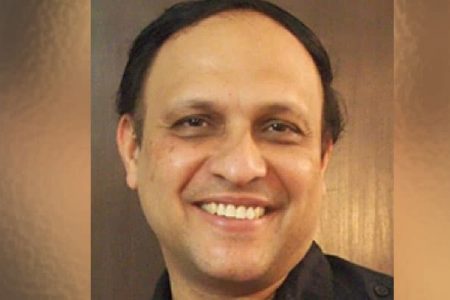Pratik Kumar, Country Director, Malaria No More India highlights that the bifurcation of the public and private healthcare systems has led to fragmentation of data input and interpretation. There is an urgent need to redraw the boundaries of individual stakeholders
Despite substantial decline in the global malaria burden, the disease remains a significant public health risk across Africa and South Asia. According to the World Malaria Report 2021, India alone accounts for over 83 per cent of estimated cases in Southeast Asia.
India’s initiatives against Malaria include launching the ambitious National Framework of Malaria Elimination in 2016 with the overall goal of zero indigenous cases by 2030. However, the robustness of the current Indian surveillance system is a matter of concern. Lack of an established, near real-time, case-based surveillance system challenges India’s ability to mount a cohesive and integrated malaria elimination agenda.
There is wide discrepancy in the cases reported and deaths recorded by the national programme of India and cases estimated by the WHO and various research studies. The National Programme reported 0.84 million cases and 194 deaths in 2017 whereas the WHO estimated 9.6 million cases and 16,700 deaths during the same year. There are multiple reasons behind these discrepancies.
First and foremost, the available data on the presence of malaria cases is disintegrated and fragmented. With substantial mobile populations and large transitory urban slum populations, there is a need for adequate surveillance and a call to address the lag in reporting of malaria cases with the coordinated involvement of the private and public sectors.
Despite having several researchers, scientists, doctors, non-government bodies, philanthropic organisations and other independent bodies who work in the field of malaria, India lacks a centralised database for notification of malaria. This is a serious bottleneck to enhancing our understanding of the dynamic predicament of malaria in our country.
A 2017 study by Singh et al, reported trends in preference of 65 per cent of the community seeking malaria healthcare from private sector as compared to 35 per cent seeking government health providers. With a large number of people seeking healthcare support from the informal private sector, there is a large proportion of the malaria burden that goes unrecorded by official data.
The bifurcation of the public and private healthcare systems has led to fragmentation of data input and interpretation. There is an urgent need to redraw the boundaries of individual stakeholders and instead put in place a system that allows them to monitor real-time epidemiological, entomological and surveillance data for evidence-based formulation of malaria control policies.
To facilitate accurate and timely reporting of malaria cases and effective case management and follow-up, engagement with private providers is essential. This is especially true in settings where the private sector is a major healthcare provider. India has one of the most privatized health systems in the world, and more than 75 per cent of its qualified doctors and nurses work in the urban private sector. They include western as well as traditional practitioners and unregistered pharmacists and drug sellers. Moreover, more than 80 per cent of care-seekers in slums and rural areas perceive informal private providers as their first point of medical assistance.
Given their diversity and reach, private sector health providers are important partners for malaria surveillance. In India, participation of the private sector is especially crucial because it provides 60 per cent–70 per cent of healthcare. However, there is no concrete roadmap that truly includes the private sector in tackling malaria thanks to which private sector participants are given low priority in the public health agenda.
The private sector plays a crucial role in the fight against malaria and must be channeled to raise public awareness on malaria prevention, control and treatment within communities to get them involved in the surveillance, treatment and overall malaria elimination process. The community mobilisation efforts must also involve private health care providers including hospitals, clinics, and general practitioners.
Several countries have successfully sought greater private sector participation to track the emergence and spread of malaria. Sri, Lanka, El Salvador, and Paraguay have allowed active involvement of the private sector in malaria surveillance and management. The certification of Paraguay’s elimination of malaria demonstrates the output that can be achieved with integrated management, by increasing surveillance, training health professionals and including the private sector in efforts to tackle malaria.
COVID-19, despite its debilitating effect on the global economy, has mobilized one and all to share real-time data of daily cases and deaths, data which is then made readily available across many dashboards. The digital tracking of COVID-19 has empowered both public health specialists and the general population and can be used as a good blueprint for the fight against malaria.
Different stakeholders in India’s healthcare ecosystem-public sector agencies, private healthcare providers, industry, independent researchers, and control programs must collaborate more for improved monitoring and reportage of malaria cases. Facilitating reporting, referral and establishing training linkages between the public and private sectors to make malaria a notifiable disease are important steps that require assistance from the private sector. Accurate information on malaria will enable better decision making to harness the human and financial resources of private sector healthcare providers to make India malaria-free.

